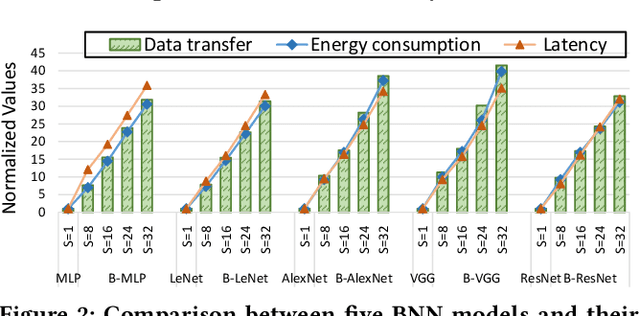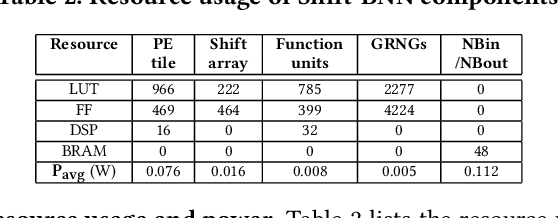Shift-BNN: Highly-Efficient Probabilistic Bayesian Neural Network Training via Memory-Friendly Pattern Retrieving
Paper and Code
Oct 07, 2021



Bayesian Neural Networks (BNNs) that possess a property of uncertainty estimation have been increasingly adopted in a wide range of safety-critical AI applications which demand reliable and robust decision making, e.g., self-driving, rescue robots, medical image diagnosis. The training procedure of a probabilistic BNN model involves training an ensemble of sampled DNN models, which induces orders of magnitude larger volume of data movement than training a single DNN model. In this paper, we reveal that the root cause for BNN training inefficiency originates from the massive off-chip data transfer by Gaussian Random Variables (GRVs). To tackle this challenge, we propose a novel design that eliminates all the off-chip data transfer by GRVs through the reversed shifting of Linear Feedback Shift Registers (LFSRs) without incurring any training accuracy loss. To efficiently support our LFSR reversion strategy at the hardware level, we explore the design space of the current DNN accelerators and identify the optimal computation mapping scheme to best accommodate our strategy. By leveraging this finding, we design and prototype the first highly efficient BNN training accelerator, named Shift-BNN, that is low-cost and scalable. Extensive evaluation on five representative BNN models demonstrates that Shift-BNN achieves an average of 4.9x (up to 10.8x) boost in energy efficiency and 1.6x (up to 2.8x) speedup over the baseline DNN training accelerator.
 Add to Chrome
Add to Chrome Add to Firefox
Add to Firefox Add to Edge
Add to Edge